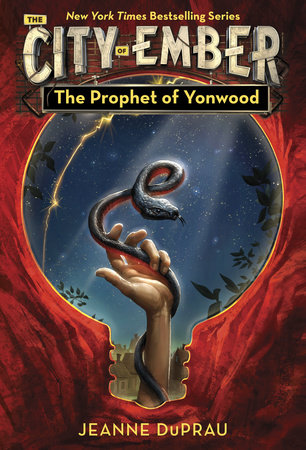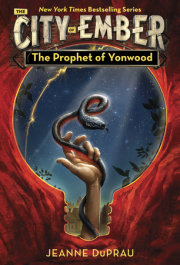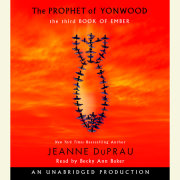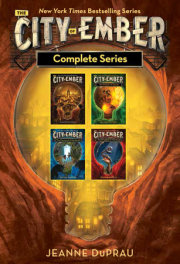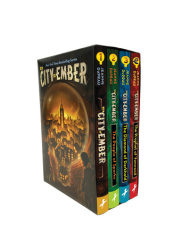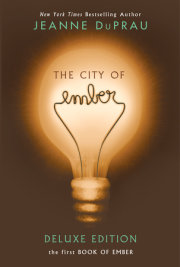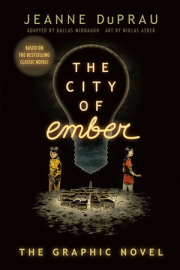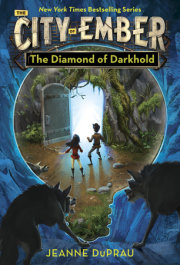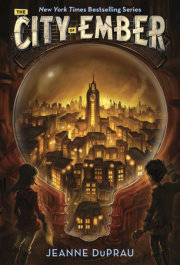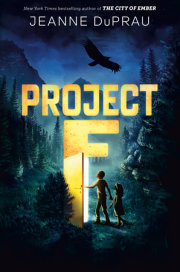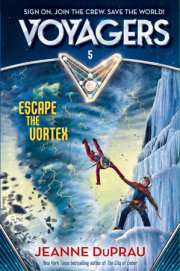The VisionOn a warm July afternoon in the town of Yonwood, North Carolina, a woman named Althea Tower went out to her backyard to fill the bird feeder. She opened her sack of sunflower seeds, lifted the bird feeder’s lid–and that was when, without warning, the vision assailed her.
It was like a waking dream. The trees and grass and birds faded away, and in their place she saw blinding flashes of light so searingly bright she staggered backward, dropped her sack of birdseed, and fell to the ground. Billows of fire rose around her, and a hot wind roared. She felt herself flung high into the sky, and from there she looked down on a dreadful scene. The whole earth boiled with flames and black smoke. The noise was terrible–a howling and crashing and crackling–and finally, when the firestorm subsided, there came a silence that was more terrible still.
When the vision finally faded, it left Althea stunned. She lay on the ground, unable to move, with her mind all jumbled and birds pecking at the spilled birdseed around her. She might have lain there for hours if Mrs. Brenda Beeson had not happened to come by a few minutes later to bring her a basket of strawberries.
Seeing Althea on the ground, Mrs. Beeson rushed forward. She bent over her friend and spoke to her, but Althea only moaned. So Mrs. Beeson used her cell phone to call for help. Within minutes, four of her best friends–the doctor, the police chief, the town mayor, and the minister of the church–had all arrived. The doctor squatted beside Althea and spoke slowly and loudly. “Can you tell us what’s wrong?” he said. “What is it?”
Althea shivered. Her lips twisted as she tried to speak. Everyone leaned in to hear.
“It’s God,” she whispered. “God. I saw...I saw...” She trailed off.
“Merciful heavens,” said Brenda Beeson. “She’s had a vision.”
Of course they didn’t know at first what her vision had been. They thought maybe she’d seen God. But why would that frighten her so? Why would she be muttering about fire and smoke and disaster?
Days went by, and Althea didn’t get better. She lay on her bed hardly moving, staring into the air and mumbling. Then, exactly a week later, a clue to the mystery came. The president of the United States announced that talks with the Phalanx Nations had reached a crisis. Their leaders would not give in on any of their demands, and the leaders of the United States would not give in on theirs. Unless some sort of agreement could be reached, the president said, it might be necessary to go to war.
Brenda Beeson made the connection right away: War! That must be what Althea Tower had seen. Mrs. Beeson called her friends, they told their friends, the newspaper wrote it up, and soon the whole town knew: Althea Tower had seen the future, and it was terrible.
All over Yonwood, people gathered in frightened clusters to talk. Could it be true? The more they thought about it, the more it seemed it could be. Althea had always been a quiet, sensible person, not the sort to make things up. And these were strange times, what with conflicts and terrorists and talk of the end of the world–just the kind of times when visions and miracles were likely to happen.
Brenda Beeson formed a committee to take care of Althea and pay attention to anything else she might say. People wrote letters to the newspaper about her and left flowers and ribbons and handwritten notes in front of her house. The minister spoke of her in church.
After a few weeks, nearly everyone was calling her the Prophet.
Chapter 1: The InheritanceNickie Randolph’s first sight of the town of Yonwood was a white steeple rising out of the pine forest that covered the mountainside. She leaned forward, gazing through the windshield of the car. “Is that it?”
Her aunt Crystal, who was driving, put one hand up to shield her eyes from the rays of the setting sun. “That’s it,” she said.
“My new home,” said Nickie.
“You have to get that notion out of your mind,” said Crystal. “It’s not going to happen.”
I’m going to
make it happen, thought Nickie, though she didn’t say it out loud. Crystal’s mood was already bad enough. “How long till we get there?” she asked.
“We’ll be there in twenty minutes, if nothing else gets in our way.”
A lot had gotten in their way so far. The Streakline train was closed down because of the Crisis, so they’d had to drive. They’d been on the road for seven hours, though the trip from Philadelphia should have taken no more than five. But long lines at gas stations, detours around pot-holed or snow-covered stretches of highway, and military roadblocks had slowed them down. Crystal didn’t like delays. She was a fast-moving, efficient person, and when her way was blocked, she became very tense and spoke with her lips in two hard lines.
They came to the Yonwood exit, and Crystal turned off the highway onto a road that wound uphill. Here the trees grew thick on either side, and so tall that their bare branches met overhead, making a canopy of sticks. Drops of rain began to spatter the car’s windshield.
After a while, they came to a sign that said, “Yonwood. Pop. 2,460.” The trees thinned out, and the rain fell harder. They passed a few storage sheds, a collapsing barn, and a lumberyard. After that, houses began to appear on the side of the road–small, tired-looking wooden houses, their roofs dripping. Many of them had rockers or couches on the front porch, where people would no doubt be sitting if it weren’t the dead of winter.
From a small brick shelter at the side of the road, a policeman stepped out holding a red stop sign. He held it up and waved it at them. Crystal slowed down, stopped, and opened her window. The policeman bent down. He had on a rain jacket with the hood up, and rain dripped off the hood and onto his nose. “Hello, ma’am,” he said. “Are you a resident?”
“No,” said Crystal. “Is that a problem?”
“Just doing a routine entry check, ma’am,” the man said. “Part of our safety program. Had some evidence lately of possible terrorist activity in the woods. Your purpose here?”
“My grandfather has died,” Crystal said. “My sister and I have inherited his house. I’ve come to fix the house up and sell it.”
The man glanced at Nickie. “This is your sister?”
“This is my niece,” said Crystal. “My sister’s daughter.”
“And your grandfather’s name?” said the man.
“Arthur Green,” said Crystal.
“Ah, yes,” the policeman said. “A fine gentleman.” He smiled. “You be careful while you’re here, now. We’ve had reports indicating there may be agents of the Phalanx Nations traveling alone or in small groups in parts of the area. Have you been spoken to by any suspicious strangers?”
“No,” said Crystal. “Just you. You seem very suspicious.”
“Ha ha,” said the man, not really laughing. “All right, ma’am,” he went on. “You may go. Sorry for the delay, but as you know there’s a crisis. We’re taking every precaution.”
He stepped away, and they drove on.
“Terrorists even
here?” Nickie said.
“It’s nonsense,” said Crystal. “Why would a terrorist be wandering around in the woods? Pay no attention.”
Copyright © 2006 by Jeanne Duprau. All rights reserved. No part of this excerpt may be reproduced or reprinted without permission in writing from the publisher.

